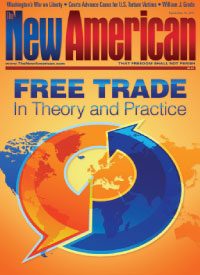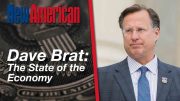
The term “free trade” is often used these days in multinational agreements such as the North American Free Trade Agreement (NAFTA), although such arrangements do not eliminate government involvement in trade but create multinational entities to regulate it.
From Whence Free Trade?
Free trade has been a controversial economic concept since the 16th century. During that time, a policy known as “mercantilism” grew up in Europe, after the decay of the feudal system set in. Mercantilism rested on the belief that, in order to increase the wealth of a nation, the government needed to regulate the economy and pursue policies that would increase its stores of gold and silver bullion, secure a favorable balance of trade by restraining imports and encouraging exports, and develop home industries to maintain domestic employment. The power centers of Europe competed to establish colonies that would provide both a reliable source of cheap raw materials for the production of manufactured goods and a ready market for those goods.
As a result of this competition, military conflict between nation-states was more frequent and more extensive than at any other time in history. Armies and navies were no longer temporary forces raised to meet a specific threat or achieve a desired objective, but became full-time professional forces. Each government’s primary economic goal was to obtain enough hard currency to support a military that would both deter attacks by other countries and aid its own territorial expansion. Most of the mercantilist policies came about as the result of the relationship between the governments of the nation-states and their mercantile classes (producers and merchants). In exchange for paying taxes to support the armies and navies of the nation-states, the mercantile classes expected governments to enact policies that would protect their business interests against foreign competition.
International trade policies under the mercantile system were based on the view that international economic relations amounted to a zero-sum game in which one nation’s gain must be another nation’s loss. During the mercantilist era, the principal benefit of foreign trade was considered to be the importation of gold and silver. According to this view, the benefits to one nation that imported gold and silver were matched by costs to the other nation that exported gold and silver and there were, therefore, no net gains from trade. For nations that were almost constantly on the verge of war with each other, draining one another of valuable gold and silver was thought to be almost as desirable as the direct benefits of trade.
Adam Smith, an 18th-century Scottish economist, challenged the idea that the wealth of a nation is measured by the size of its bullion horde in his famous book The Wealth of Nations, which is generally considered to be the foundation of modern economic theory. Smith offered a number of significant refutations of mercantilist doctrine. First, he demonstrated that freely initiated trade benefits both parties. Secondly, he showed that specialization in manufacturing promotes economies of scale, which improves productivity and growth. Finally, Smith argued that the collusion between the government and the mercantile classes was harmful to the general population. While mercantilist policies were intentionally designed to benefit the government and the commercial classes, the doctrine of laissez faire, or free markets, which Smith propounded, interpreted economic welfare in a manner that included the entire population of a nation. Smith summed it up thusly:
Consumption is the sole end and purpose of all production; and the interest of the producer ought to be attended to, only so far as it may be necessary for promoting that of the consumer. The maxim is so perfectly self-evident, that it would be absurd to attempt to prove it. But in the mercantile system, the interest of the consumer is almost constantly sacrificed to that of the producer; and it seems to consider production, and not consumption, as the ultimate end and object of all industry and commerce.
Smith believed that free trade would change international commerce from a potential source of conflict into a foundation for the development of peaceful relations and mutual benefit. But this could only come about if governments were guided by the economic principles revealed by Smith and other economic theorists who were devoted to the common good. As Smith lamented at the time, “Each nation has been made to look with an invidious eye upon the prosperity of all the nations with which it trades, and to consider their gain as its own loss. Commerce, which ought naturally to be, among nations, as among individuals, a bond of union and friendship, has become the most fertile source of discord and animosity.”
On the other hand, Smith was not a free-trade purist, but believed that there are exceptions to the general principles he advocated. Since Great Britain was an island nation, its national security depended on its ability to maintain a strong navy and merchant marine. In this case, Smith explained:
The first [exception] is, when some particular sort of industry is necessary for the defence of the country. The defence of Great Britain, for example, depends very much upon the number of its sailors and shipping. The act of navigation, therefore, very properly endeavors to give the sailors and shipping of Great Britain the monopoly of the trade of their own country, in some cases, by absolute prohibitions, and in others by heavy burdens upon the shipping of foreign countries.
In addition to protecting key industries through the banning of foreign ships from British ports, Smith argued that tariffs may sometimes be advisable, as well:
The second case, in which it will generally be advantageous to lay some burden upon foreign [imports] for the encouragement of domestic industry, is, when some tax is imposed at home upon the produce of the latter. In this case, it seems reasonable that an equal tax should be imposed upon the like produce of the former.
Just such a situation occurred in the United States during the Civil War. To help fund the war, heavy taxes were imposed on Union manufacturers. Offsetting tariffs were then placed on the corresponding imported manufactured goods, to ensure that Union factories would not lose their home markets, and to ensure that the Union government would not lose any revenue for the war effort.
Smith also described two other situations when the national interest might call for the imposition of tariffs and/or some other trade restrictions:
Some foreign nation [may restrain] by high duties or prohibitions the importation of some of our manufactures into their country. Revenge in this case naturally dictates retaliation, and that we should impose the like duties and prohibitions upon the importation of some or all of their manufactures into ours….
There may be good policy in retaliations of this kind, when there is a probability that they will procure the repeal of the high duties or prohibitions complained of. The recovery of a great foreign market will generally more than compensate the transitory inconveniency of paying dearer during a short time for some sorts of goods.
Applying Smith’s rule of reciprocal action, the United States would have been justified in retaliating against Japan for the dumping of everything from cameras to television sets into American markets at prices below the cost of production in the United States during the period of Japanese economic recovery from the devastation of WWII, because Japan was simultaneously putting up a host of trade restrictions against American goods, including a total ban on the importation of American rice. Instead, free-trade purists rejected pleas for temporary protection and allowed the decimation of many U.S. industries, which led to the loss of hundreds of thousands of good-paying jobs.
Smith’s argument that mutual benefits flow from international free trade was refined and extended by English economist David Ricardo in his theory of comparative advantage, which was presented in his 1817 treatise Principles of Political Economy and Taxation. The basic idea can be stated as follows: A country that trades for products it can get at a lower comparative cost from another country is better off than if it had made the products at home. To illustrate this principle, Ricardo used an example involving the countries of Portugal and England, and the commodities wine and cloth.
Let us say that Portugal can produce one case of wine with 15 hours of labor and one bolt of cloth with 10 hours of labor. England’s workers, on the other hand, are less productive. They require 30 hours of labor to produce a case of wine and 15 hours of labor to produce a bolt of cloth. At first glance, one might think that, since Portugal requires fewer labor hours to produce either commodity, it has nothing to gain from trade, because it has an absolute advantage in producing both commodities. What Ricardo argued was that it could still be mutually beneficial for both countries to specialize in producing one commodity and then trading for the other.
His argument was laid out in this manner: In Portugal, a case of wine takes the same number of man hours to produce as 1.5 bolts of cloth. A case of wine in England takes the same number of man hours to produce as two bolts of cloth. Portugal is relatively better at producing wine than cloth, so Portugal is considered to have a comparative advantage in the production of wine. England is relatively better at producing cloth than wine, so England is said to have a comparative advantage in the production of cloth. Because Portugal’s population is smaller than England’s population, Portugal is assumed to have 180 man hours of labor available for production, while England is assumed to have 270 man hours of labor available for production. Before trade takes place, Portugal produces and consumes six cases of wine and nine bolts of cloth (6 x 15 + 9 x 10 = 180), while England produces and consumes five cases of wine and eight bolts of cloth (5 x 30 + 8 x 15 = 270). The total production of the two countries is 11 (6 + 5) cases of wine and 17 (9 + 8) bolts of cloth. But if both countries specialize, Portugal producing only wine and England producing only cloth, total production becomes 12 cases of wine (180/15 = 12) and 18 bolts of cloth (270/15 = 18). Specialization has enabled the two countries to increase production by one case of wine and one bolt of cloth. By trading with each other, Portugal and England can distribute the goods according to their preferences, and both are better off, as a result of their specialization and trading.
Comparative Advantage Continued
Admittedly, the previous paragraph did not exactly make for light reading, and required a fair degree of concentration in order to get a clear understanding of how the arithmetic of Ricardo’s thesis plays out. But an understanding of the theory of comparative advantage is absolutely vital in any discussion of free trade, because it is the linchpin that holds together all of the standard arguments supporting free trade.
As hinted at above, Ricardo’s theory relies heavily on the economic concept of opportunity cost, which Ian Fletcher, senior economist for the Coalition for a Prosperous America, explains by answering the question, “Why don’t professional football players mow their own lawns?” (Okay, Brett Favre reportedly uses a riding mower, but he’s the exception that proves the rule!) After all, a professional athlete is presumably in better condition than the average yard care worker and could do the job more efficiently, as measured in acres per hour, for example. But, even though the football player has an absolute advantage in productivity, he will hire someone else to mow his lawn for him, because he feels that he has better things to do with his time.
That is the key to understanding the concept of opportunity cost: It is the value of whatever we give up, in order to do something else. A direct cost is relatively easy to calculate. In this lawn mowing example, it’s the cost of hiring someone to mow the lawn. But trying to figure out one’s opportunity cost is a lot more complicated, because it depends on what other opportunities exist. The opportunity cost of doing something is always the next most valuable thing we could have done instead, which is not always easy to determine. In any case, the best choice is to always try to minimize one’s opportunity cost. This is where trade enters the picture.
Looking at the global economy, we see that there is an army of low-skilled workers making toys in China. American businesses have decided not to compete with China in making toys because America’s factors of production (resources such as land, raw materials, labor, technology, etc.) can be used more efficiently making other products that can be sold more profitably. Expanding this idea to all countries and to all products, production of any product will ideally take place in the country that can produce it at the lowest opportunity cost. Hence, the theory of comparative advantage views international free trade as an interconnected system of trade-offs, in which countries use the ability to import and export as a means to minimize opportunity costs and reorganize their factors of production so that they can be used most profitably.
Free-trade purists argue that, conversely, it must logically follow that any policy other than free trade would trap countries into producing less-valuable output than they could have produced, because it would burden them with higher opportunity costs. Classical free-trade proponents further claim that, if imports drive an industry out of business, then that would be good for a country because it means that the nation’s economy would be forced to reallocate its factors of production to producing something having a lower opportunity cost. The logic of profit dictates that the nation’s comparative advantage must lie elsewhere, that it will be better off producing according to that comparative advantage, and that the rest of the world will be better off, too.
So goes the theory, but the example above illustrating the mechanics of comparative advantage makes a number of assumptions that are not altogether realistic in the real world:
• Transport costs are ignored.
• There is full employment in both countries.
• Costs are constant and there are no economies of scale.
• There are only two economies producing two commodities.
• Each commodity is of identical quality in both countries.
• Factors of production are perfectly mobile within each country, in order to allow production to be switched without cost.
• Factors of production are immobile between countries, in order to maintain each country’s comparative advantage.
• There are no tariffs, quotas, or other trade barriers.
• All buyers and sellers know where the cheapest commodities can be found at all times.
• Governments do not impede or distort the marketplace through their domestic tax and regulatory policies — or if they do, the two countries are equally impacted.
Flaws in Free Trade
Those assumptions (and that list is by no means exhaustive) lead to a number of significant flaws in Ricardo’s theory that are all too often overlooked or downplayed by its adherents and, therefore, the predicted benefits do not occur to the extent forecasted, when put into practice.
In fact, transport costs do enter into the final price of a product, and transport costs can vary greatly, depending on the weight or bulk of a product. Also ignored is the cost of economic damage done in the process of manufacturing something. A classic example is environmental pollution, which has an economic cost that is not reflected in the price. Goods from a country with lax pollution standards will be relatively cheap, relative to a country with strict pollution laws. Practicing free trade in such circumstances benefits a country such as China, but harms both itself and other countries, because pollution crosses national borders.
In addition, because of cheap products made in countries with lax environmental standards, countries with burdensome environmental restrictions will be adversely affected in the way of employment. Of course, it could be argued that a country heavily burdened by taxes and regulations should work to get rid of, or at least ease, that burden, rather than work to further block foreign competition. Nonetheless, such a country will suffer the loss of businesses and jobs if it removes its international trade barriers prior to easing its tax/regulatory burden. But as the list above clearly illustrates, not all factors are related to government interventionism.
The theory of comparative advantage asserts that, within any country, free trade will cause factors of production to be reallocated from economic sectors with a comparative disadvantage to economic sectors with a comparative advantage. But this process will break down if factors of production cannot readily reorganize. For example, if labor cannot easily move from an industry in decline to an industry on the upswing, due to mismatching skills, then free trade will lead to increasing unemployment. And that brings us into conflict with the assumption that full employment always exists in every country. The doctrine of comparative advantage not only assumes that workers and their skills are perfectly interchangeable, but also assumes that the up-and-coming industries will always be willing and able to immediately employ any and all displaced workers. Look around and see if that is happening in your area!
The corresponding assumption regarding the factors of production is that they are not internationally mobile. If they were, then productive resources would be located wherever in the world they could be used with the most relative efficiency. This international movement would optimize the world economy, but would not necessarily benefit a particular country, because it would have lost its comparative advantage to the country holding an absolute advantage. An assumption that may have been at least partially plausible during Ricardo’s time is no longer true today. As explained by economist Paul Craig Roberts:
The international mobility of factors of production is a new phenomenon. It permits first world businesses, seeking lower costs, greater profits, and a stronger competitive position, to substitute cheap foreign labor for the entire range of domestic labor involved in the creation of tradable goods and services. Only labor involved in non-traded goods and services is safe from foreign substitution. It is not yet possible to package hair cuts, surgical operations, dentistry or home repairs as internationally tradable services.
The known necessary conditions for free trade to be mutually beneficial do not hold in today’s environment where factors of production are as mobile, if not more so, than traded goods. What we are witnessing is not trade based on comparative advantage but the flow of first world factors of production to cheap Asian labor where the productivity of capital and technology is highest.
[I] do not dispute that global gains might exceed first world losses. Nevertheless, the flow of factors of production to absolute advantage in place of comparative advantage vitiates the case for free trade — that it produces mutual gains to the countries involved. What we may be witnessing is global capitalism destroying national sovereignties, leading to a global government.
Thus we have the awkward situation that Americans experience today, when cheaper foreign-manufactured goods replace goods that used to be produced here: Corporations and investors like the higher profits, consumers like the lower prices, but workers don’t like the resulting job losses. Because most consumers are also workers, there is no guarantee that, under free trade, they will gain more as consumers than they lose as workers.
Roberts’ commentary reminds us that free trade is not free. When Americans buy goods from foreigners, those foreigners expect something in return. We can sell them goods that we manufacture, such as airplanes; or we can sell them some of our assets, such as land and buildings; or we can sell them IOUs, such as corporate and government bonds. As the United States has moved from a manufacturing economy to a service economy, it has put itself into a precarious situation. Because we have not been willing to protect various manufacturing industries, America can no longer produce goods in sufficient quantities to offset the amount of goods that it imports. And much of what we do “produce” is not exportable: How does one export the output of a retail sales clerk, a fast-food restaurant server, or a bartender? With every month that goes by, we are told that America has racked up yet another monstrous trade deficit. Common sense should tell us that this situation is unsustainable because we have only a limited number of assets that we can sell off, and we cannot afford to service an unlimited amount debt. But based on the dogma of comparative advantage, that is what blind faith in unrestricted free trade has brought us.
While the theory of comparative advantage can be a useful tool for economic analysis, it is simply not logical to use it as proof that unlimited free trade all of the time with every country in the world is good for America. That could only be true if all of the associated assumptions about comparative advantage were actually valid in the real world, but they are not. In fact, the way the world works nowadays means that those assumptions move further away from reality with every passing day.



